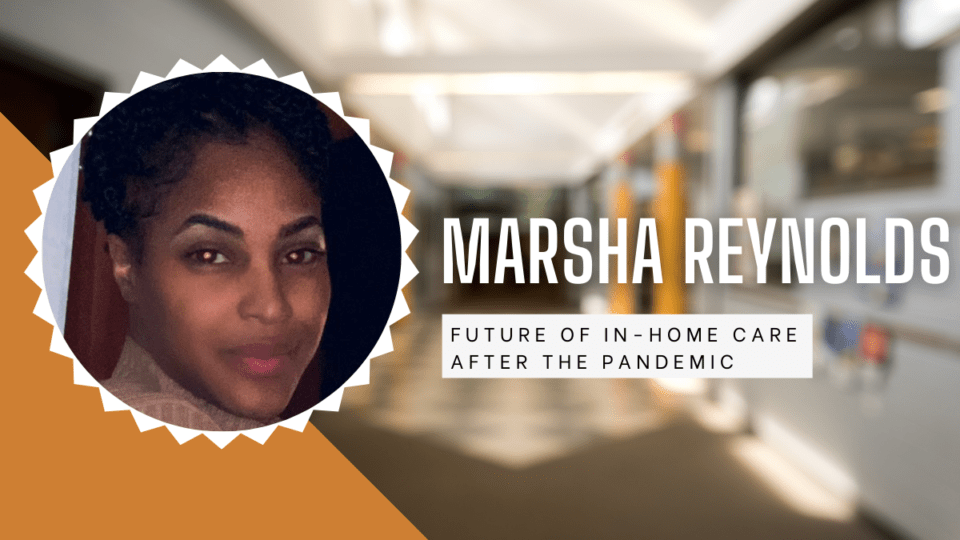The pandemic has changed the way we think about healthcare. In-home care is now more important than ever.
Marsha Gay Reynolds, a prominent voice in the industry of in-home care services, has shared her thoughts on how the pandemic has changed and will change the landscape of these essential services.
In this article, she shares her insights into a range of topics such as safety protocols, staffing changes, and technological advances that are shaping the future of in-home care.
What is In-Home Care?
In-home care includes services provided in a person’s home setting such as personal care, meal preparation, laundry help, medication management, and other activities of daily living.
Caregiving services can be hired on an hourly basis or retained with a long-term contract.
This type of service offers convenience and independence to elderly individuals or those with special needs who prefer to remain in the comfort of their own homes.
How has Covid-19 Changed the In-Home Care Industry?
Covid-19 has undoubtedly had a dramatic impact on the in-home care industry. Marsha Gay Reynolds believes that the pandemic has opened the floodgates for in-home care.
With social distancing protocols and the fear of infection, there is now an increased need for alternative care options or technology to ensure the safety of everyone involved.
There are more opportunities and options than ever before. This is good news for people who need care in their homes.
One of the biggest changes is the use of technology. Telehealth has become more popular during the pandemic. This means that doctors can now provide care over the phone or through video calls. This is great for people who can’t leave their homes.
People who provide care might need to become experts in certain areas or get certified. They also need to take precautions, like wearing protective equipment, when they work in someone’s home.
Additionally, new policies may be implemented such as regular temperature checks.
What Safety Measures Have Been Implemented?
In-home care providers are being encouraged to take safety precautions to protect both their clients and themselves from Covid-19.
These include implementing social distancing protocols such as limiting contact with other individuals, wearing masks in public or when visiting clients’ homes, washing hands frequently, and refraining from touching the face.
It’s also important for providers to make regular check-ins with their own healthcare professionals to ensure they remain healthy enough to work safely.
As managing director, Marsha Gay Reynolds discusses COVID-19 safety measures. Masks are mandatory for all employees and patients. The office staff carries sanitizer at all times. We train employees on how to clean and disinfect the area. Sick employees must stay home. These precautions help protect both staff members and patients from the spread of COVID-19.
Additionally, some companies now require caregivers to be certified or specialize in certain areas so that they can better serve individuals throughout this pandemic.
What Types of Services are Ideal for In-Home Care After the Pandemic?
In-home care and assistance are vital to helping individuals remain safe, healthy, and comfortable in their own homes during and after the current pandemic.
Marsha Gay Reynolds anticipates that after the pandemic, in-home care will become more popular. Services such as meal preparation, medication reminders, and activities should be provided. Personal care tasks like transportation are also necessary. In-home care offers companionship. It also helps reduce loneliness among family members who need help with daily living activities. It may be more cost-effective than nursing homes or assisted living facilities too. Making it a convenient and secure alternative for those needing help with daily tasks.
With this in mind, it’s important for caregivers to prioritize services that focus on physical well-being as well as emotional needs.
This can include assistance with basic hygiene, providing nutritious meals, monitoring of vital signs such as temperature or oxygen levels, medical aid, transportation assistance for errands or doctor appointments, and activities that help socialization like playing games or puzzles.
Additionally, caregivers should be prepared to provide mental health support for their clients if needed.
How can Caregivers and Clients Benefit From the Changing Service Models?
Specialized home care services provide tailored programs for specific medical conditions or needs. Caregivers can create personalized plans that address clients’ physical, emotional, and mental well-being.
By doing this, we can guarantee the most successful treatment outcomes and maximize the quality of life post-pandemic.
Telehealth and remote monitoring can be especially helpful to rural clients by providing them with easier access to medical specialists.
Another big shift will come with regard to in-home care payments. Marsha Gay Reynolds believes insurance companies will start covering more of the expenses. This will make it simpler for people to access necessary help.
Conclusion
Marsha Gay Reynolds emphasizes the need for innovation and technology in in-home care. She thinks the pandemic highlighted the significance of offering care from home and inclusive options. Reynolds views the future of in-home care as bright with plenty of room for growth and improvement within this field.
To learn more about Marsha, please visit her personal website.
